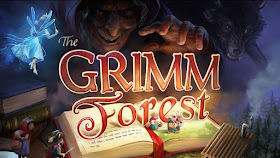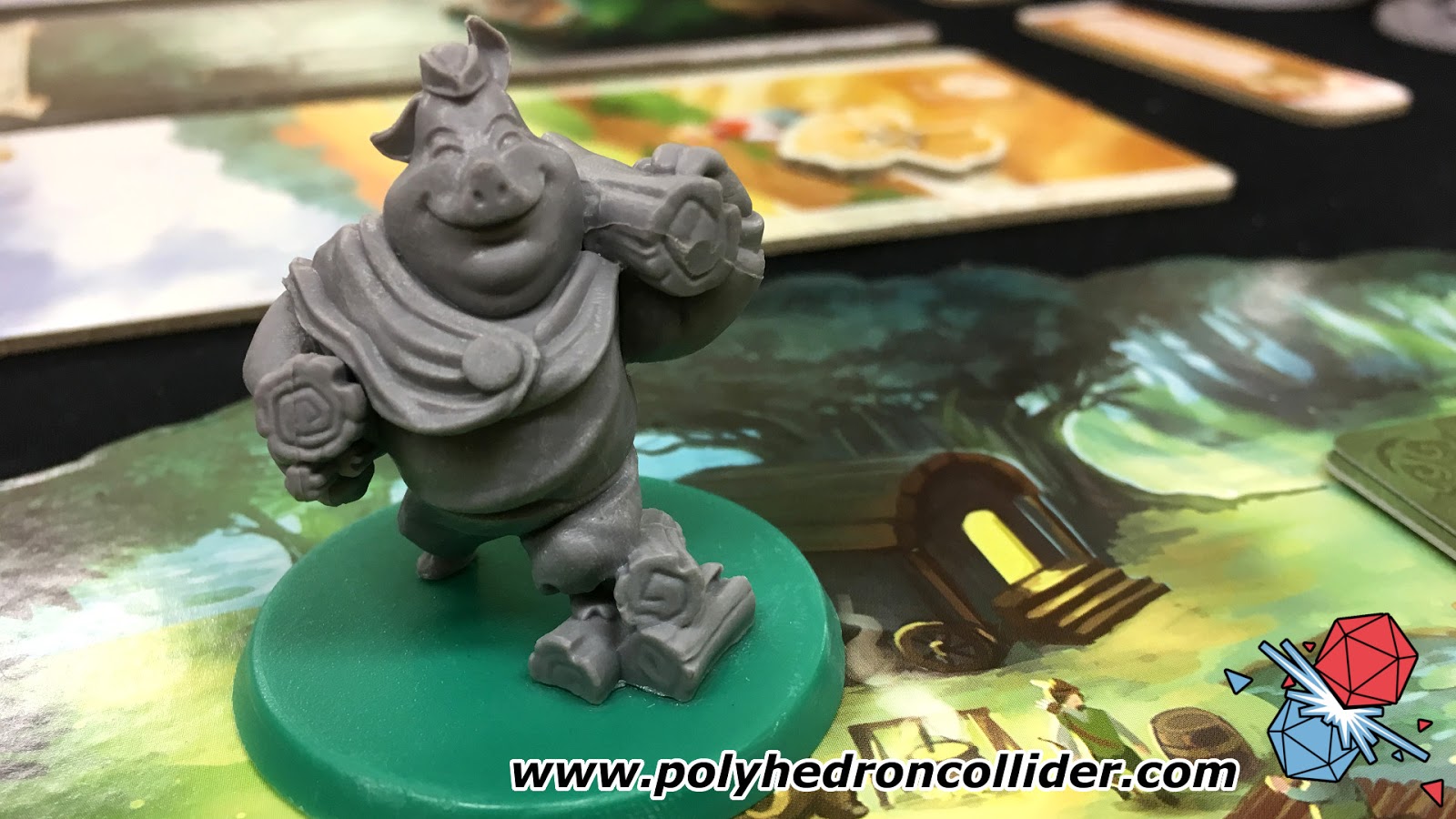Once upon a time there was a trio of men who had a severe obsession in board games. Because of this obsession, they spent many hours playing, discussing and criticising their games, arguing about which was best. Needless to say, they almost never agreed.
It turns out that on occasion, the stars do align and said trio of man-children do reach a consensus. Unfortunately for the Grimm Forest, it's not a positive outcome.
It turns out that on occasion, the stars do align and said trio of man-children do reach a consensus. Unfortunately for the Grimm Forest, it's not a positive outcome.
But let's not get ahead of ourselves. Many moons ago in 2017, two thirds of the aforementioned threesome conducted an interview with James Hudson, the project manager of Druid City Games. We were rather interested in Grimm Forest after the sales pitch; a wonderful combination of the Three Little Pigs and the rest of the Grimm Fairy Tales where pigs take it upon themselves to build the fabled houses from straw, sticks and bricks using resources gathered from said Forest. First to build three houses wins the game.
In principle, it's a neat idea. I'm a bit of a fan of the fables; they're dark, inventive and something we all grew up with as children so there's a nice bit of nostalgia thrown into the mix. Players play a card to indicate which resource they wish to gather, each playing in secret alongside an optional "Fable" card (or "dickmove" as I prefer to call it) which invariably ruins your opponent's day. Cards are revealed, resources are doled out and any possible effects are put into play. Players then take it in turns to build their houses or gather additional resources. Rinse and repeat.
So it's a simple game with a great idea behind it. Sadly, reality is a poor approximation to theory and we found the game quickly began to unravel. The rulebook isn't entirely clear on when Fable effects take precedent if they have the same timing so we had to assume the player order took effect. But this was only one of many niggles we had. Jon, our randomness fan, commented that even he found it too random, something the rest of us took with more than shock. The Fable cards meant that quite frequently a player had no control over their game so were effectively reduced to sideshow. Not something any game participant wants and it breaks a cardinal sin of the Polyhedron Collider "Things that make games great" rulebook: let players make meaningful decisions. Removing that element results in frustration and boredom.
In keeping with the theme of the game, players also claim Friend cards; other characters from the Grimm Tales which grant special ongoing power-ups. Great in theory, but again, the execution was a little messy. You're only allowed to have one, which is fine, but if you got another (you get one after building the walls to your houses) you need to make a choice whether to keep the one you already have or replace it with the new one. Again, fine, but here's the rub: if you don't want it, you have to give it to another player and they must accept it, disposing their existing Friend if they have one. So you're helping your opponents because if their card isn't as good as the one you have passed over, they gain. So you're torn between ruining your own game and improving your opponents'.
In keeping with the theme of the game, players also claim Friend cards; other characters from the Grimm Tales which grant special ongoing power-ups. Great in theory, but again, the execution was a little messy. You're only allowed to have one, which is fine, but if you got another (you get one after building the walls to your houses) you need to make a choice whether to keep the one you already have or replace it with the new one. Again, fine, but here's the rub: if you don't want it, you have to give it to another player and they must accept it, disposing their existing Friend if they have one. So you're helping your opponents because if their card isn't as good as the one you have passed over, they gain. So you're torn between ruining your own game and improving your opponents'.
One of the positives of the game is the miniatures; they're lovely. There's the Big Bad Wolf, the Dragon, the Troll from the Billy Goats Gruff, four player Pigs (we'll forego the fact that there's four, not three) and even a Giant. The playing pieces are well designed and all parts slot together nicely. The insert is also staggeringly good. It's actually a contender for "Andy's Insert of Choice" award for 2018. It's just a shame that the miniatures are entirely unnecessary and add little to the game that couldn't be achieved by putting a card on a location instead. Why is this bad? It makes a £25 to £30 game cost far too much, or to put it another way, Grimm Forest is a 30 quid game in a 60 quid box. A text book example of over-production.
I really wanted to like Grimm Forest after speaking to James about it. There was so much promise and the idea was great. Sadly, the game itself was a little uninteresting, overproduced (and therefore too costly) and just lacking in any real substance. I could see it working as a family game as it's simple and straightforward, but for 60 quid there's far better out there for less money so I can't recommend it at that price.
What started as a nice story has sadly turned into a disappointing, expensive luck-fest and certainly not the fairytale ending I was hoping for.
This review is based on a full Kickstarter copy of the game.






No comments:
Post a Comment